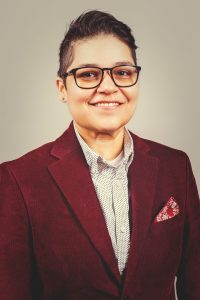Low percentage of females in S.T.E.M
December 2, 2018
NEIU offers a multitude of science, technology, engineering and math (STEM) related majors, and while there are no restrictions as to who can sign up, STEM students are seeing an inconsistent balance between male and female students, staff and faculty.
The NEIU mathematics and computer science major have a significant difference in enrollment rates between males and females. According to NEIU’s data digest, the enrollment for computer science undergraduate students is 64 women, 353 men and nine unspecified genders.
The mathematics undergraduate major enrollment has 29 females and 39 males. The mathematics undergraduate for secondary education has six females and 13 males.
Math student Ena Allahverdy said “The further I go into these math courses, the less women I see and it gets super intimidating. When I see these numbers I am blown away.”
When asked how NEIU can make these numbers change, Allahverdy answered, “(We need) more women promoting STEM fields during activity fairs; women encouraging women. If I see something that relates to me, the more prone I am to participate.”
The chair of the mathematics department Lidia Filus said the exposure of women mentors can increase these numbers.
“NEIU has an exceptional math department where the majority of faculty are women,” Filus said. “They create a very supportive environment and serve as role models and excellent mentors for female students who choose math for their major or minor.”
Rachel Adler, a computer science (CS) professor, said that in the years she has worked at NEIU, enrollment in the program hasn’t increased. Adler said she would love to help change that.
Adler is involved with a grant from the National Science Foundation (NSF) which helped create the 108 computer science course, “Computer Science For All,” which is available for all majors.
The Math, Science, and Technology for Quality Education (MSTQE) is an education program that trains future elementary and middle school math and science teachers. The CS department plans to not only “incorporate computational thinking and coding into some of the existing MSTQE courses,” according to Adler, but to also add course 108 as a requirement for completing the MSTQE program.
“Our goal is to add CS as a requirement for the program so when students become teachers they are using it in elementary and middle school,” Adler said. “This way female students and minorities grow up knowing they could do it because they have been doing it all along.”
With only 15 percent of NEIU computer science majors being female, Adler said, “We are also interested in the short-term goal of changing this 15 percent.”
Computer science student Syema Ailia plans to achieve this short-term goal of changing the statistics. “In the spring, I’ll be starting a STEAM club which is STEM and art combined for minorities in the tech industry such as women, non-binary and women of color.”
A club such as STEM can expose more students to the computer science field.
“I think that will help a lot especially because they are combining with art majors,” Adler said. “That’s what the computer science for all initiative is about really, and reaching out to get more females by starting very young. It’s not just for one person, but for everyone.”





